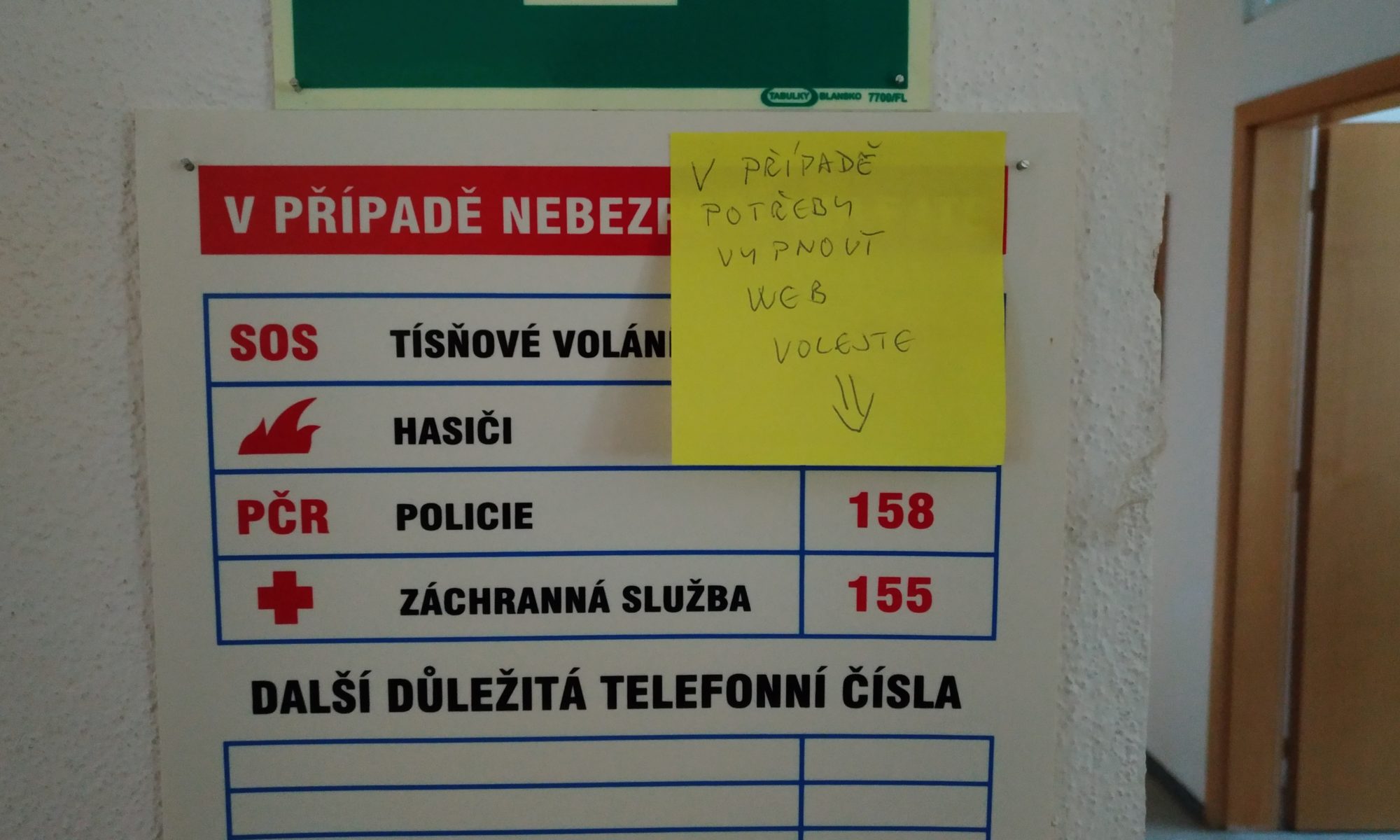Today 13. 3. 2019, at 9:56 a.m., we received the first call for immediate shutdown of the website under the new Section 7b of the Criminal Procedure Code, which we have criticized in previous articles. We acted quickly and without delay, as the law dictates.
In this particular case, the decision was sanctioned by the prosecutor, making it an inherently legitimate request.
When are the next ones coming?
If the shutdown of a website (or server) is approved in advance by a court or a prosecutor, we have no problem with it. The courts and prosecutors are there to decide who breaks the law and what consequences they must face for doing so, or to oversee the practices of the police. In our opinion, however, such powerful tools as shutting down any Internet service (website, service, server, ISP …) do not belong in the hands of police forces. Police officers are supposed to investigate and not decide on such fundamental matters as to whom and how a website or server should be shut down. It could be an e-shop that employs dozens of people… And the presumption of innocence should not be forgotten, which police officers sometimes don’t like to see…
Now, as of February, the big power – to shut anything down – is directly in the hands of the police. The only thing that restricts them from using the new section is that “the matter cannot be delayed”, which on the internet can be for example: what if someone shares the content on social networks, what if it gets indexed by a search engine or simply seen by thousands of other people… In our case today, the “cannot be delayed” aspect could not be applied because the police had been interested in the website for a long time and it was certainly not an acute problem.
Requests (only) from the police (without prior approval of the court or the prosecutor) may come very soon. Quite often we receive nonsensical police requests based on various nonsensical paragraphs and with various nonsensical arguments. Now all that’s needed is for the nonsensical request to refer to §7b and it’s over…
At first glance, it was nothing serious on the (now shut down) website. Maybe a misdemeanor or some petty offense, but that’s what we have law enforcement for… It certainly wasn’t some child pornography, terrorism, phishing or a fraudulent e-shop, for example. The presentation looked absolutely fine and it is probably some problem of the owner (operator) of the site. It is not for us to judge and evaluate.
Want to learn more about §7b?
Article You want to destroy the competition? Czech laws are here for you! we released 19. 2. 2019 and describes §7b and its possible abuse in practice.
We have received many positive but also negative reactions, especially from people who have tried
§7b to defend. That is why we decided to refute the frequently used arguments in an article called “lex WEDOS”, published on 27. 2. 2019. It also proposes several modifications to the disputed portions of §7b. We wanted to show that it can be done democratically.
The more we looked into §7b and the events surrounding it, the more absurd we found it. We have even found that they have more moderate and, above all, more logical procedures in Russia. Read more in our article z 4. 3. 2019 We talked to Andrei about it. The situation is close to that in Russia….
We had no idea how the topic of interception of internet communications, data release and shutting down services from a legal perspective is confusing even for many experts. We have therefore decided to write down all the related sections and how they are used in practice and compare them with the new §7b. Article To help and protect? We’re gonna shut down your website. Brand. came out 5. 3.2019 and was intended for everyone who is interested in this topic and wants to learn something from behind the scenes.
Section 7b is the biggest attack not only on freedom of speech since the establishment of the independent Czech Republic, and it is not enough to speak out. That is why we met with the MPs from the Pirate Party to inform them of the seriousness of the situation. You can read how it went in the article How we went to fight for freedom not only for the Internet – Section 7b needs to be changed!

